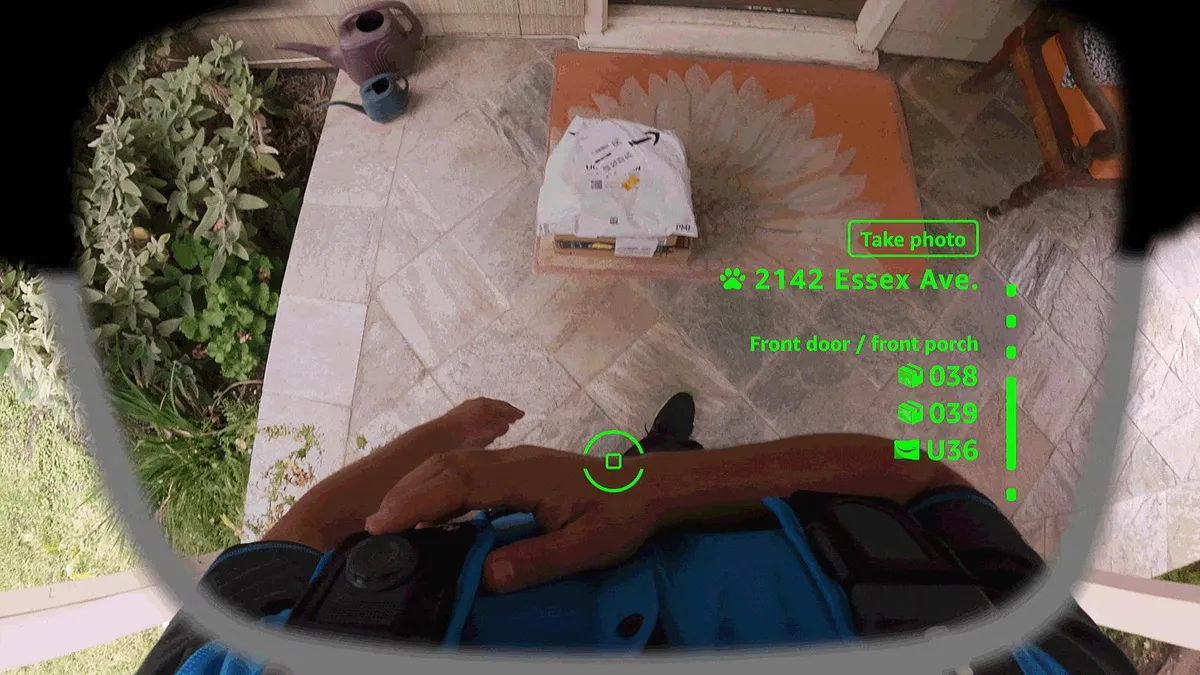
Amazon is on the forefront of innovation with the development of smart delivery glasses aimed at empowering Delivery Associates (DAs) to identify hazards, navigate customer doorsteps seamlessly, and enhance the overall delivery process. This cutting-edge wearable technology has been meticulously designed and optimized with insights from hundreds of DAs and drivers working for Delivery Service Partners (DSPs).
Every day, DAs connect millions of customers with their packages, demonstrating precision and care while navigating neighborhoods. Amazon is committed to exploring new and innovative ways to make the delivery experience as safe and seamless as possible. Since the inception of the Delivery Service Partner program in 2018, Amazon has leveraged technology to support and enhance the DA experience. This includes everything from dedicated simulation training to improved navigation and investments in package handling processes.
With the introduction of smart delivery glasses, Amazon is adding another layer of support. These glasses are designed specifically for DAs, enabling them to scan packages, follow turn-by-turn walking directions, and capture proof of delivery—all without the need to look at their phones. This hands-free experience minimizes distractions, allowing DAs to focus on their surroundings while ensuring efficient and safe deliveries.
The smart glasses incorporate AI-powered sensing capabilities and advanced computer vision, providing a heads-up display that features navigation details, potential hazards, and other essential delivery tasks. Upon safely parking at a delivery location, the glasses activate automatically to present the DA with vital delivery information within their field of view. This includes locating the correct packages inside the vehicle and guiding them to the precise delivery address using Amazon’s geospatial technology.
If DAs encounter hazards or need to navigate complex environments, such as apartment buildings, these smart glasses offer real-time guidance, ensuring they reach their destinations safely and efficiently.
To develop these smart glasses, Amazon sought feedback directly from the experts—the drivers. Hundreds of DAs tested early prototypes and provided invaluable insights that shaped the design for comfort during all-day use and ensured clarity in the displays. Kaleb M., a DA from Maddox Logistics Corporation in Omaha, Nebraska, shared his experience, stating, “I felt safer the whole time because the glasses have the info right in my field of view. Instead of having to look down at a phone, you can keep your eyes forward and look past the display—you’re always focused on what’s ahead.”
The glasses come with a small controller that can be worn in the delivery vest, featuring operational controls, a swappable battery for extended use, and a dedicated emergency button to contact emergency services if needed. Additionally, the glasses are compatible with prescription lenses and can accommodate transitional lenses that adjust to varying light conditions.
As Amazon continues to refine this innovative technology, they are leveraging the latest advancements in AI to create a comprehensive delivery system. This system aims to enhance safety and streamline the delivery experience at every stage—from within Amazon’s delivery stations to roads and the final stretch to a customer’s doorstep.
Future iterations of the smart glasses are expected to include features such as real-time defect detection, which will alert DAs if a package has been mistakenly dropped at an incorrect location. They may also detect environmental hazards, adjust lenses for low light conditions, and notify DAs of pets in yards, further enhancing safety during deliveries.
The introduction of smart delivery glasses is just one aspect of Amazon's broader commitment to innovate within the last-mile delivery process. The goal is to create solutions that improve safety and enhance the overall work experience for DAs who tirelessly bring smiles to customers’ doors every day. For more information on Amazon's latest advancements, including Blue Jay and Project Eluna, explore how robotics and AI technology are being designed with front-line employees in mind.